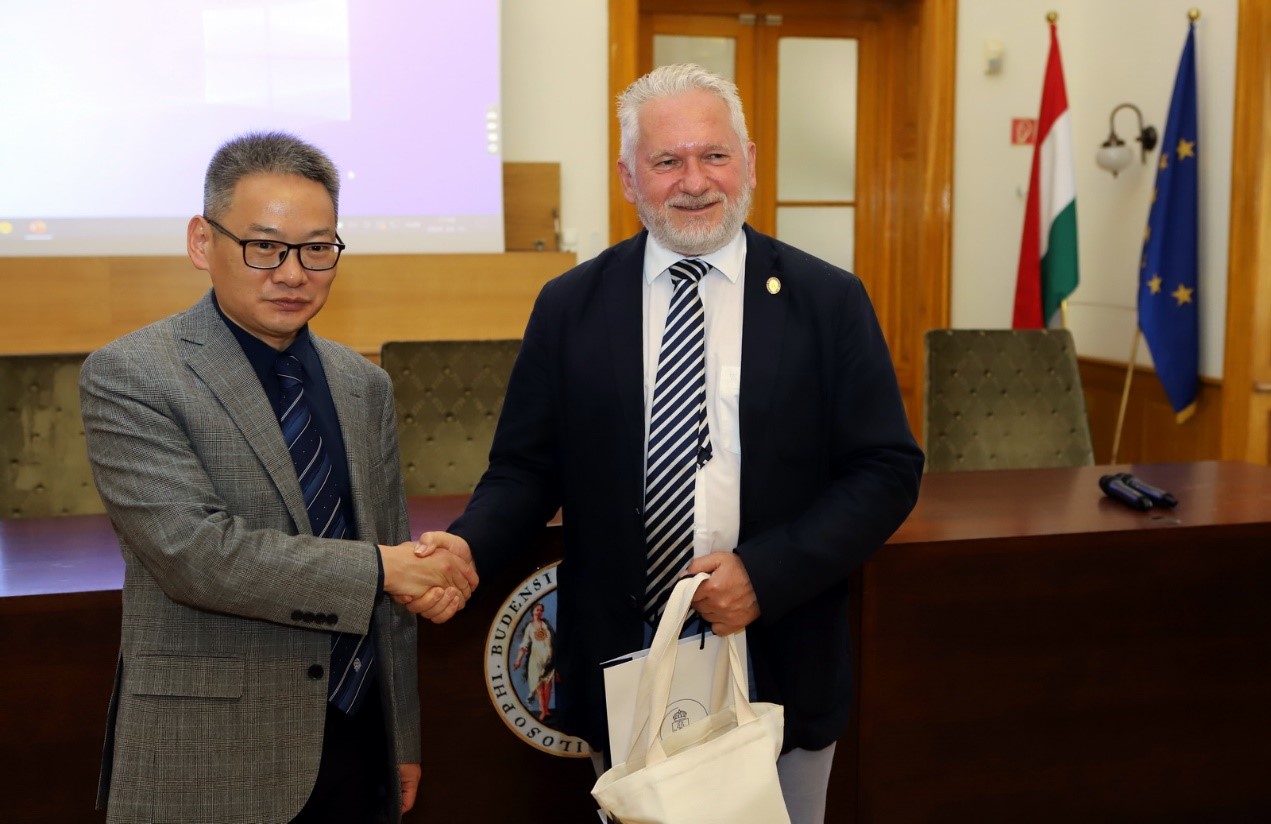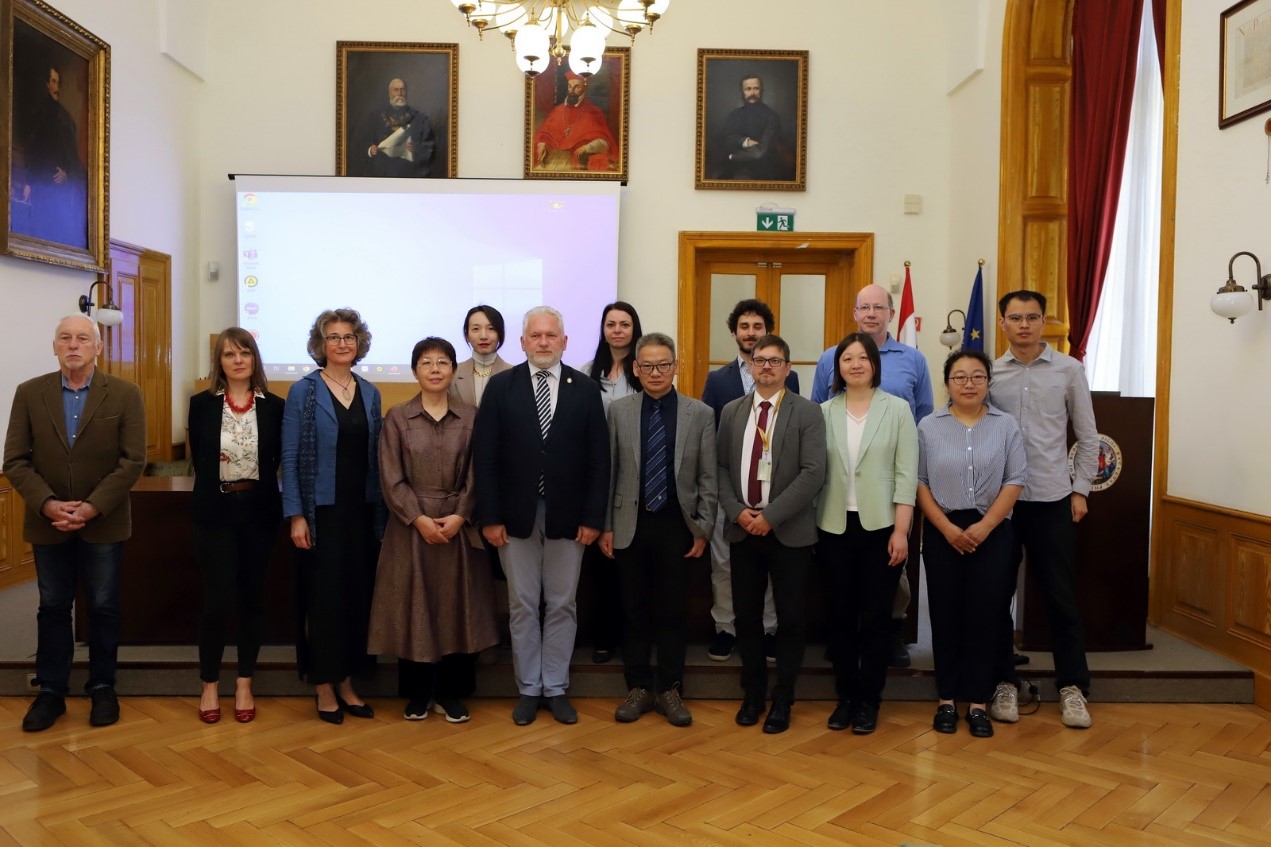On April 10th, 2024, a delegation from the Association for Trans-Eurasia Exchange and Silk Road Civilization Development (ATES) visited Eotvos Lorand University (ELTE) in Budapest, Hungary. Prof. László Borhy, Rector of ELTE, and Prof. Orsolya Réthelyi, Vice Dean of ELTE International Affairs, welcomed the ATES colleagues. Prof. László Borhy provided an overview of ELTE's long history, academic excellence, and strengths in fields such as archaeology, archaeogenomics, ethnology, and oriental studies. He expressed ELTE's eagerness to participate in the ANSO-MTA Silk Road Forum and the 3rd ATES Open Science Conference in 2025 in Budapest as a key organizer of Hungary. ELTE is fully committed to supporting the conference preparations in collaboration with the Institute of Tibetan Plateau Research, Chinese Academy of Sciences (ITPCAS), and other ATES partners. Prof. Orsolya Réthelyi emphasized ELTE's long-term commitment to promoting China-Hungary cooperation and exchanges, which includes establishing extensive partnerships with Chinese universities and scientific institutions, as well as with ATES.
Prof. Juzhi Hou, Executive Director of ATES, expressed gratitude to ELTE headquarters for the warm reception. He emphasized that ATES is dedicated to studying the interaction between environmental change and trans-Eurasian exchange along the Silk Road, with a focus on promoting cross-regional and interdisciplinary research in natural sciences, social sciences, and humanities. As Hungary is located at the crossroads of Europe and Asia, he hoped that both sides would seize this opportunity to enhance cooperation in developing joint research, exchanging visiting fellows, and providing training for young scientists in the future.
Following the welcome ceremony, a joint workshop titled "New Avenues of Silk Road Research from a Multidisciplinary Perspective" was held at ELTE. Dr. Krisztina Hoppál from ELTE's Roman World and the Far East Research Group delivered a special talk entitled "Cross-Cultural Interactions in Antiquity: Chinese Silk Finds from the Roman Empire." Prof. Juzhi Hou introduced the ITPCAS research team focusing on Alpine Paleoecology and Human Adaptation as well as ATES. Ms. Jingyuan Feng from the Secretariat of the Alliance of National and International Science Organizations for the Belt and Road Regions (ANSO), provided an introduction to ANSO's history, programs, and projects. After the workshop, the ATES delegation visited the Institute of Archaeology at ELTE where they had a fruitful discussion with the Director of the Institute, Prof. Tivadar Vida and other scientists.
ELTE was founded in 1635 and ranks as the top comprehensive university in Hungary. The current number of students enrolled yearly has reached 33,000 including more than 2,000 international students, and academic staff of 1,800 highly-qualified teachers and researchers. The nine faculties are Faculty of Economics, Faculty of Education and Psychology, Faculty of Humanities, Faculty of Informatics, Faculty of Law, Faculty of Primary and Pre-school Education, Faculty of Science, Faculty of Social Sciences and Bárczi Gusztáv Faculty of Special Needs Education. The Confucius Institute at ELTE is the center of training local Chinese teachers for 16 countries in Central and Eastern Europe.

Prof. Juzhi Hou together with Prof. László Borhy

Group photo of New Avenues of Silk Road Research from a Multidisciplinary Perspective Workshop


